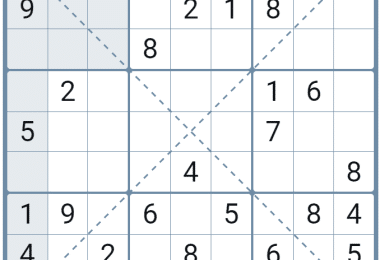Being left on read is never a good feeling. Most of us have been there. You experience self-doubt, frustration, or anxiety. The brain interprets it as a risk to one’s social connection, even causing feelings of abandonment in some. You might start wondering if the person is mad at you, whether you said something wrong, and the dangerous game of emotional roulette starts.
The more time passes after being left on read, the louder the voice becomes: maybe you’re not worth their time. This can eat away at your confidence. The ubiquity of social media, messaging apps, dating sites, and online platforms, in general, amplifies the effects of rejection. Digital communication has engendered the illusion that people are always available. Online platforms make it easy to see when someone is active or available online. The constant visibility increases expectations for engagement or an immediate response. When someone fails to respond to you, but you can see them interacting with others, the rejection feels quite personal.
Dating Apps: A Goldmine or a Minefield of Rejection?
Digital rejection on dating apps for professionals is deeply intertwined with the unique pressures of modern career-oriented lives. These platforms often cater to individuals who value efficiency, ambition, and compatibility, creating an environment where matches—or their absence—carry heightened stakes. As a result, rejection on these apps can feel more personal, as profiles often highlight achievements, career trajectories, and curated personal successes. The swift, impersonal nature of swiping intensifies feelings of inadequacy when matches don’t materialize, feeding into broader fears of failure or not meeting societal standards of success.
The paradox of choice also plays a role. With thousands of potential matches available at a single swipe, individuals can become desensitized to rejection, treating connections as disposable. On the other hand, those facing repeated rejection can experience emotional exhaustion, leading to self-doubt and questioning their desirability. The impersonal nature of these platforms often makes it difficult to gauge genuine interest, leading to uncertainty about where one stands with potential matches.
Exacerbating Circumstances
According to a survey by the Survey Center on American Life, dating is becoming a prerogative of adults. Just 56% of Gen Z adults dated as teens, representing a remarkable change from previous generations. 78% of Baby Boomers and 76% of Generation Xers had a boyfriend or girlfriend as teenagers. 44% of Gen Z males, firmly in the group of young professionals, report having no experience with relationships at all as teens, twice the rate for older men. This lack of experience can amplify the effects of digital rejection because people have yet to build resilience.
Dating trends reflect the effects of rejection. A 2025 Plenty of Fish survey found nearly 70% of users reported “rejuve-dating,” which involves focusing on self-care after a breakup. This growing trend suggests that individuals are actively seeking ways to rebuild self-esteem and mental well-being after experiencing romantic rejection online. Moreover, the rise of ghosting culture—where individuals cut off communication without explanation—further exacerbates feelings of unworthiness and uncertainty.
Social Rejection Correlates with Depressive Symptoms
Psychological assessments have traditionally focused on offline rejection, but researchers recently developed a measure to assess social rejection sensitivity in both online and offline environments because many (if not most) social interactions take place online. Their scale provides a reliable measure of social rejection sensitivity across four samples, including 2,381 people aged 12-89. Social rejection sensitivity across environments strongly correlates with depressive symptoms and brooding, a form of maladaptive behavior. Researchers identified age-related differences in sensitivity. Predictably, sensitivity to rejection decreased with age.
A study published in the Journal of Social and Clinical Psychology further supports this correlation, indicating that prolonged social rejection—especially digital rejection—can significantly impact mental health, increasing anxiety and depressive symptoms. The immediate feedback loop created by social media and messaging apps intensifies the psychological toll, as individuals constantly seek validation through responses and online interactions.
How to Cope with Digital Rejection
The experience of being left on read taps into basic psychological needs and fears. Human beings need to feel connected, and a response to a message can validate one’s perceived presence in someone else’s life. On the other hand, silence conveys the message that the individual is unimportant.
Being left on read also creates a gap in your personal narrative. Without closure, your brain fills in the blanks in that story, usually with worst-case scenarios. The lack of response makes you feel powerless. You’re stuck in limbo because you can’t control when they will respond or if they will.
To cope with these unpleasant feelings, it’s crucial to reframe digital rejection. Consider that the lack of a response is not necessarily a reflection of your worth. People get busy, forget to reply, or may not be in the right mindset for a conversation. Developing resilience in the face of digital rejection requires limiting overanalysis, practicing self-compassion, and redirecting energy toward meaningful interactions.
If the lack of response deeply affects your self-esteem, setting boundaries with social media use and reducing reliance on external validation can help. Engaging in activities that reinforce self-worth—such as hobbies, exercise, or spending time with supportive friends—can mitigate the emotional impact of being left on read.
Conclusion
The sting of being left on read is deeply tied to human psychology and our innate need for connection and validation. As digital communication continues to shape social interactions, the impact of rejection in online spaces will likely persist. However, understanding the psychological mechanisms at play can empower individuals to navigate these experiences with resilience. By shifting perspective, fostering self-worth beyond digital validation, and recognizing that rejection often has little to do with personal value, individuals can reclaim control over their emotional responses. In an era of constant connectivity, learning to detach from digital rejection is a crucial step in maintaining mental well-being and developing healthier relationships online and offline.






